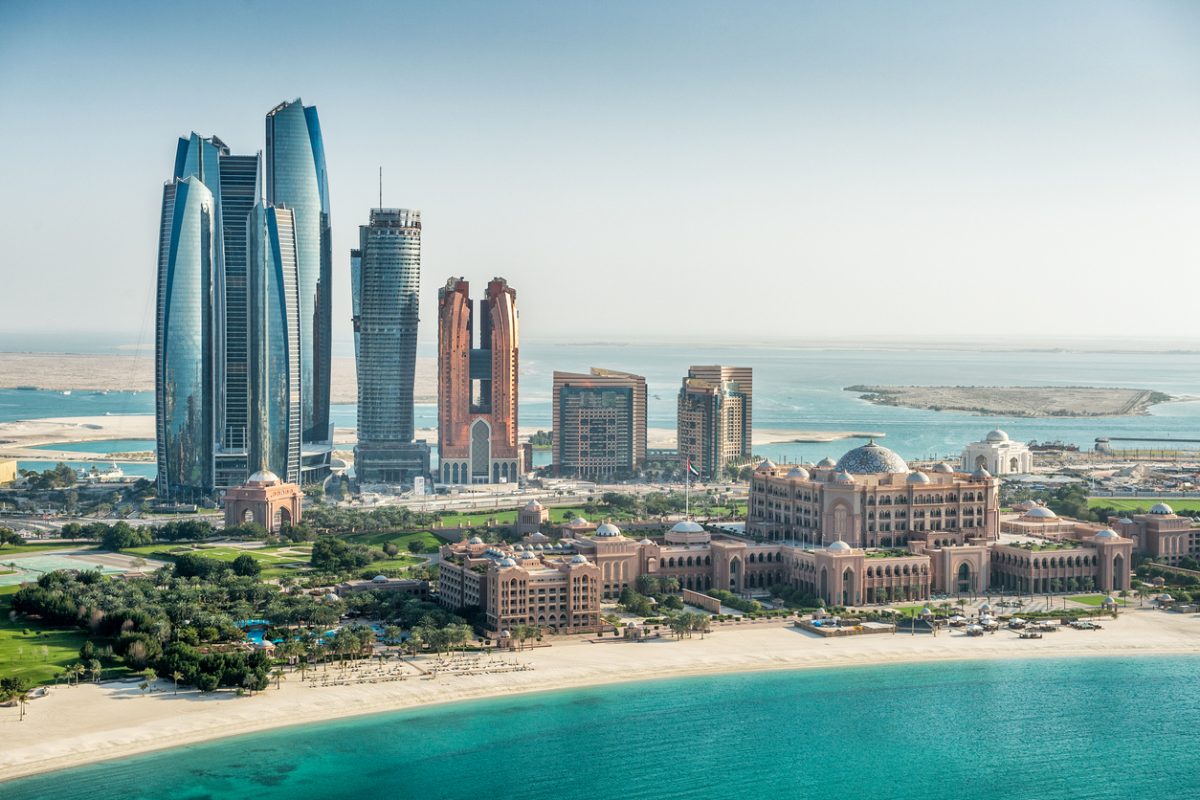Here in our latest spotlight on the United Arab Emirates (UAE), we venture into its capital city’s most current economic developments through the lens of fintech.
The Emirate of Abu Dhabi is home to around three million people, with half of its population inhabiting its capital city under the same name.
There’s a total of seven such Emirates (or states) located in the UAE, with Dubai, Sharjah and Ras al-Khaimah being neighbouring examples.
The UAE has the sixth-largest crude oil reserves in the world (2020), with Abu Dhabi having the largest share of that from the other six Emirates, with around 92.2 billion barrels of oil (2019).
Its vast oil reserves have transformed the economy of Abu Dhabi from a small fishing village to a prosperous and wealthy Emirate capital, home to the $3billion Emirates Palace (the world’s most expensive hotel ever constructed) and Sheikh Zayed Grand Mosque, one of the world’s largest mosques.
Neighbouring Gulf countries have also experienced similar prosperity off the back of their oil reserves.
Abu Dhabi is also a regional hub, playing host to the headquartered of the likes of the Arab Monetary Fund.

Just like the rest of the Gulf Cooperation Council (GCC) nations – Saudi Arabia, Qatar, Oman, Kuwait and Bahrain – the UAE is implementing long-term economic development strategies that aim to diversify its economy away from oil.
Its attention is increasingly turning to the likes of knowledge-intensive sectors, such as tech and fintech.
In the case of Abu Dhabi, in parallel with the wider UAE, the Emirate has Abu Dhabi 2030, which caters for the Emirate and the city.
Financial services and fintech are becoming an increasing priority for Abu Dhabi. Millions have been channelled into the startup ecosystem in recent years via sovereign wealth funds (SWF) like the Abu Dhabi Investment Authority (ADIA), which is one of the world’s largest SWFs with around $700billion in assets.
This is evident with the Abu Dhabi Global Market (ADGM), which is located on Abu Dhabi’s Maryah Island. ADGM is the city’s international financial centre and free zone and has been the major catalyst in Abu Dhabi driving its fintech agenda, which is helping overall foster economic development.

In discussing the tremendous growth of the city’s financial sector, Emmanuel Givanakis, CEO of the Financial Services Regulatory Authority (FSRA), explains Abu Dhabi’s strengthening focus on key high-growth sectors.
These include “information and communication technologies, renewable energy, agritech, high-tech manufacturing and defence,” Givanakis comments.
This focus is accompanied by various initiatives that promote innovation within sustainable economic development.
“ADGM has emerged as a solid example of Abu Dhabi success stories, and a prime facilitator of international investment and business growth in Abu Dhabi and beyond,” he continues, making note of the financial centre’s contribution to the sector.
To cement its position as the international financial centre of choice, Givanakis explains how ADGM’s business ecosystem is built on three pillars.
These include a business-friendly registration facility that ensures flexibility of licensing for various businesses, state-of-the-art jurisdiction based on English common law and a trusted and innovative regulator that upholds the integrity and credibility of the financial centre.
“As part of its work to support the digitalisation transformation of the finance industry, the FSRA launched several enabling regulations and guidance that better support and govern the use of technology to deliver financial services and build a more inclusive financial sector,” Givanakis adds.
The FSRA remains in close contact with the industry to ensure its regulatory frameworks and approaches are fit for purpose.
“The FSRA has just implemented its regulatory framework for spot commodity and environmental instrument activities, making it the first international financial centre in the MENA region to do so,” Givanakis comments.
“Another region-first inclusion in this framework highlights purpose-built offerings and listing rules relating to mining and petroleum companies.
“Taking a leaf from its innovative approach to regulating virtual assets, the FSRA recently issued a discussion paper on decentralised finance (DeFi) to actively engage industry stakeholders in the development of a regulatory framework and bring about the potential opportunities arising from DeFi.”
Givanakis explains how the ADGM is fully embracing the use of regulatory technology that not only supervises but also supports the financial services industry’s compliance capabilities.
This he says is establishing the foundations of a robust and transparent centre for sustainable finance.
“More importantly,” Givanakis reiterates, “it reinforces the International Finance Corporation’s institutional governance and supervisory effectiveness, which cements and expands Abu Dhabi’s footprint in the global finance industry.”
What have been key highlights across Abu Dhabi for 2022 with fintech?

First, the Emirate has hosted various events, discussions and forums pertaining to finance, fintech and wider digital.
One that will put a spotlight on Abu Dhabi in the region is the planned Abu Dhabi Finance Week which will be hosted by ADGM this November.
According to ADGM’s website, this event builds on the success of its flagship initiative Fintech Abu Dhabi, which it hosted since 2017.
Second, also located on Al Maryah Island, there is Hub71, which is also been a major catalyst for Abu Dhabi with respect to fostering and growing its tech ecosystem and was only launched back in 2019.
This year, Hub71 in August selected its latest cohort of tech startups, which include fintechs as well as other sectors, from a large number of applications worldwide.
The participants will see them partake in a two-year programme by Hub71 called the Incentive Programme, whereby they’ll benefit from equity-free incentives worth up to $136,124.80 (500,000 AED).
Third, various announcements, launches and innovations have been coming out of the capital city.
For example, Wio Bank, a digital banking platform regulated by the Central Bank of the UAE (CBUAE), officially launched in September with a focus on serving up ‘state-of-the-art digital banking apps for customers’ and embedding financial services in digital businesses.
Jointly owned by Abu Dhabi Development Company (ADQ), Alpha Dhabi Holding, Etisalat, one of the UAE’s major telecom companies and First Abu Dhabi Bank (FAB), one of the largest banks in the Middle East and Africa (MEA) region, Wio is built around three main capabilities: digital banking apps, embedded finance and banking-as-service (BaaS) solutions.
This is, according to them, the first platform bank in the region and is in line with UAE’s Digital Economy Strategy, which aims to double the contribution of the digital economy to the country’s gross domestic product (GDP) over the next decade.
It aims to enhance the position of the UAE as a hub for the digital economy in the region and globally.
Also, the ecosystem catering to fintech – from the fintechs themselves to other direct and indirect enablers – has been growing in numbers.
Fintechs that are headquartered and/or founded in Abu Dhabi include the likes of the trading platform MidChains and the wealthtech company Finamaze; to name a few.
The capital is also home to various accelerators such as Plug & Play, and also growing and fostering its wider tech and fintech ecosystem such as VCs and mentors.
Without a doubt, I expect more to come out of Abu Dhabi as it further implements its wider economic development agenda; fintech will play a role in that.



